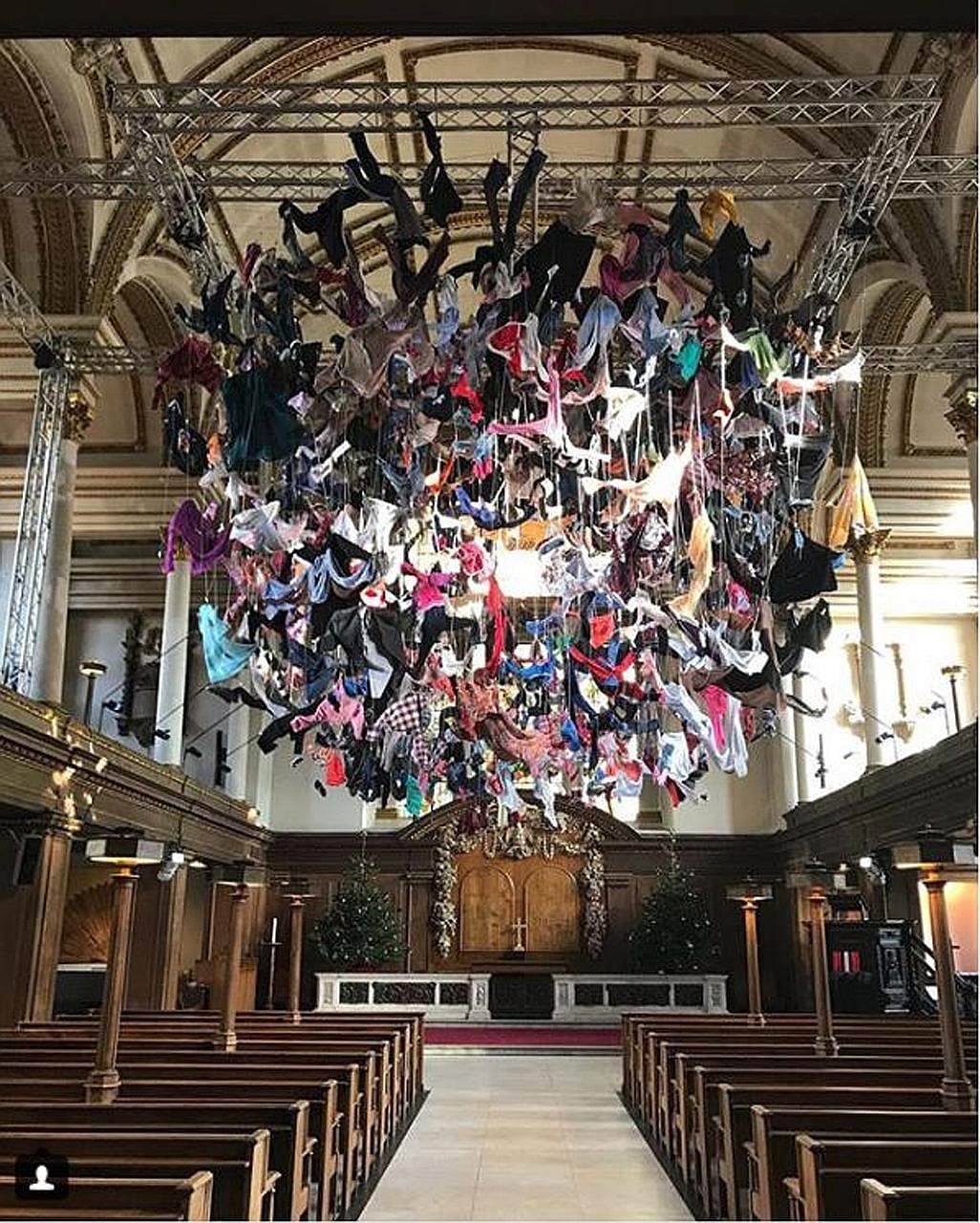LONDON • As a group of homeless men doze on pews, and colourful T-shirts and baby shoes hang low from a ceiling, London's St James' Church is ready for the festive season.
The church, built by Christopher Wren in 1676 in London's smart Piccadilly area, is home to an exhibition by British artist Arabella Dorman that focuses on clothes.
She has collected and sculpted more than 700 items of clothing discarded on the beaches and olive groves of Lesbos island in Greece, to highlight the plight of refugees.
A brightly coloured African-print dress, billowing burqas and a faded football shirt surround a glowing orb that brightens and dims, representing the oscillating hope and despair of refugees.
"I picked up some of these clothes and was immediately struck by the hidden presence of the wearer and I reflected on the power of clothes to tell a story," Dorman said. "Every time you pick up a new item of clothing, you're engaging with another life," she noted.
From afar, the clothes hang in a mass like a ghostly chandelier adorning the nave of the church.
But the artist, who has worked in Gaza, Afghanistan and Iraq, wants people to look closer and reflect on the individuals who once wore the garments. "Refugees are not numbers, they are people," she said.

Passer-by Bill Richardson, 54, said he felt challenged by the artwork and curious about the tragic journeys the clothes portrayed.
"It did make me stop and think about how grateful I am in life and to give thought and consideration to those not as fortunate," he added.
More than 3,000 people had seen the installation in recent days as they attended the church for carol services and worship, said Rector Lucy Winkett.
She added that the message of Christmas had been forgotten, and the refugee crisis had strong parallels to the Christian nativity story of Mary, Joseph and Jesus.
"It's a very modern story of a despotic leader, a dangerous situation and a family fleeing from peril," she noted. "This is actually what Christmas is about, this story happening in Europe right now, that's the Christmas story."
The installation is titled Suspended as the clothes dangle above the church altar and it also represents the state of uncertainty in which refugees find themselves.
"They are suspended in limbo - stuck between a past to which they cannot return and a future to which they cannot move forward," Dorman said.
The project aims to raise funds for the Starfish Foundation, a charity in Lesbos where hundreds of refugees still come ashore each month.
One Tuesday alone, 267 people arrived by boat, mostly from Syria, said Ms Melinda McRostie, founder of the aid organisation that is raising funds for infant buggies for the island that hosts more than 900 refugee children among 8,500 asylum seekers.
Thousands of asylum seekers have become stranded on Lesbos and four other Greek islands close to Turkey, since the European Union agreed to a deal with Ankara in March last year to shut down the route through Greece.
"This situation is not going to go away," said Dorman. "(It) is in fact deepening and worsening."
REUTERS
